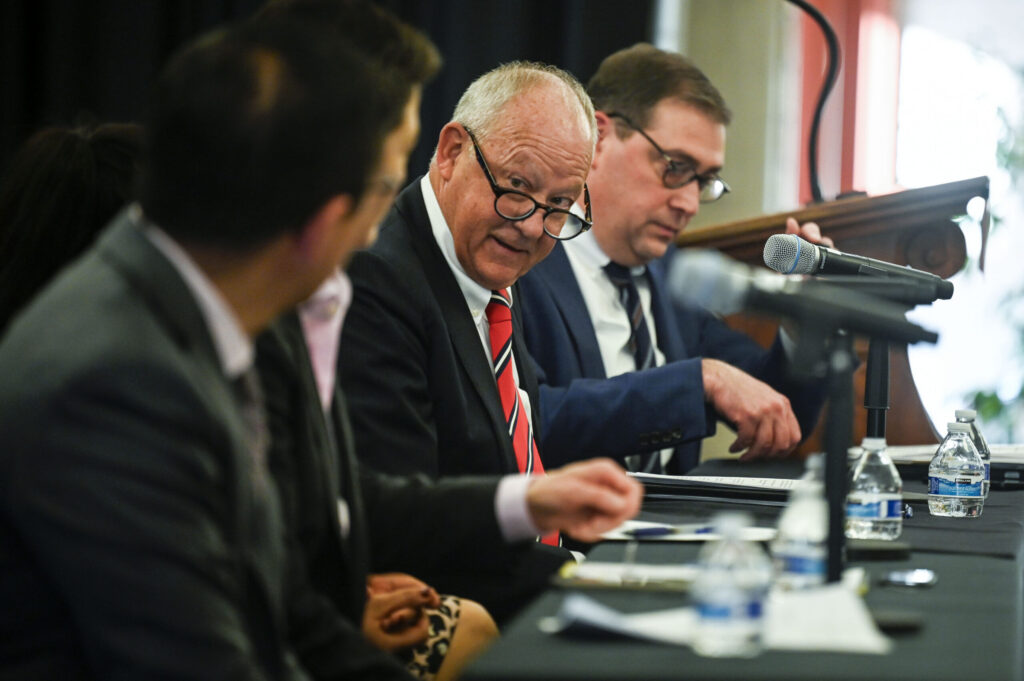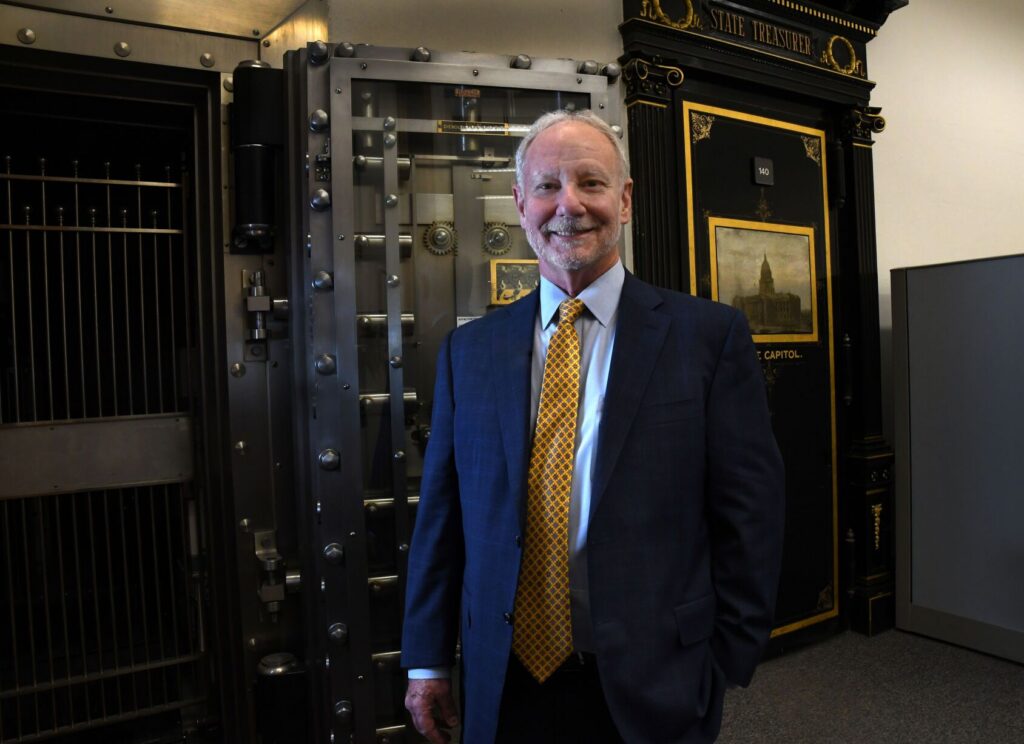Federal judge blocks Colorado’s new cap on interest rates for out-of-state banks
A federal judge on Tuesday concluded Colorado may not subject out-of-state banks to Colorado’s interest rate caps when they lend to Colorado residents, as envisioned under a new consumer protection law set to take effect on July 1.
U.S. District Court Judge Daniel D. Domenico issued a preliminary injunction applying to members of three banking industry groups, which argued Colorado exceeded its authority by “exporting” its own limits on interest rates to banks chartered in other states. Domenico noted he was tasked with interpreting federal law in a novel context, and he repeatedly criticized Congress for using unclear language.
Nonetheless, he believed Colorado’s ability to regulate excessive interest rates on loans “made in” the state was evident enough: the bank is the one that makes the loan, so Colorado’s authority extends only to its own state-chartered banks.
“And the plaintiffs have presented evidence that absent an injunction, they will be forced to stop offering their loan products altogether to certain Colorado consumers, and once gone, those customers — and their goodwill along with that of the banks’ business partners — may be gone forever,” Domenico wrote in a June 18 order.
The Colorado Attorney General’s Office declined to comment on the injunction and the plaintiff organizations did not immediately respond to a request for comment.

Daniel Domenico.
During the debate over House Bill 1229 — enacted last year but taking effect in July — the bill’s sponsors explained the goal was to prevent out-of-state banks from “hopping around” Colorado’s consumer lending laws by charging higher interest rates for financial products than Colorado law allows for its institutions.
“What this means is if a bank in Utah charges an interest rate on a small-dollar loan outside the scope of what is allowable in Colorado, they can still do so here. And Colorado consumers are still vulnerable to that sort of predatory lending,” Rep. Javier Mabrey, D-Denver, said at a committee hearing.
HB 1229 stems from a decades-old authorization by Congress. Amid rampant inflation in 1980, Congress passed a provision known as Section 521, allowing state-chartered banks to lend at interest rates up to their own state’s cap or slightly above the federal interest rate, whichever was higher. The purpose was to ensure state-chartered banks in states with low interest rate caps could still afford to lend money.
However, a second provision, Section 525, granted states the power to opt-out and ensure state-chartered banks charged interest rates in line with their state’s law. The opt-out applies to loans “made in” the state.
In March, the National Association of Industrial Bankers, a trade group based in Utah, sued Colorado in conjunction with other industry associations over HB 1229. The law invokes Colorado’s ability to opt-out through Section 525 and apply its own caps on interest rates to consumer transactions “in this state.”
The groups sought to avoid letting Colorado export its own ceilings on interest rates, which are somewhat lower than those elsewhere, to banks chartered by other states that lend to Colorado consumers.

Rep. Julie McCluskie receives a standing ovation from Democrats after being nominated for Speaker of he House during the first day of Colorado’s 2023 session at the Colorado State Capitol building on Monday, Jan. 9, 2023, in Denver, Colo.(Timothy Hurst/The Denver Gazette)
“The harm to my clients without an injunction on July 1 is clear. No one is going to sit around and wait for the first enforcement action against them before they lower their interest rate from 29% to 21%,” said attorney David M. Gossett at a hearing last month. “They’re either going to stop lending or lose money.”
The Federal Deposit Insurance Corporation, a regulatory agency that insures depositors against financial losses, weighed in on behalf of Colorado. It argued if a bank in one state makes a loan to a consumer in another state, the loan is “made in” both states and it is up to the courts to determine which state’s law applies on a case-by-case basis.
Domenico rejected that view. While acknowledging Congress “certainly could have been clearer regarding its intention,” he noted a loan is made by the bank and not by the borrower. Therefore, the opt-out can only apply to Colorado banks, rather than any bank that lends to a Colorado consumer.
He blocked the state from enforcing its interest rate ceilings against out-of-state, state-chartered banks included in the plaintiffs’ trade associations while the litigation unfolds.
The case is National Association of Industrial Bankers et al. v. Weiser et al.











